第25章
In such an atmosphere as his an eager young woman, curious as to all the manifestations of life, yet instinctively desiring that they should come to her in terms of beauty and fine feeling, must surely find the largest scope for self-expression.Study, travel, the contact of the world, the comradeship of a polished and enlightened mind, would combine to enrich her days and form her character; and it was only in the rare moments when Mr.Leath's symmetrical blond mask bent over hers, and his kiss dropped on her like a cold smooth pebble, that she questioned the completeness of the joys he offered.
There had been a time when the walls on which her gaze now rested had shed a glare of irony on these early dreams.In the first years of her marriage the sober symmetry of Givre had suggested only her husband's neatly-balanced mind.It was a mind, she soon learned, contentedly absorbed in formulating the conventions of the unconventional.West Fifty-fifth Street was no more conscientiously concerned than Givre with the momentous question of "what people did";it was only the type of deed investigated that was different.Mr.Leath collected his social instances with the same seriousness and patience as his snuff-boxes.He exacted a rigid conformity to his rules of non-conformity and his scepticism had the absolute accent of a dogma.He even cherished certain exceptions to his rules as the book-collector prizes a "defective" first edition.The Protestant church-going of Anna's parents had provoked his gentle sarcasm; but he prided himself on his mother's devoutness, because Madame de Chantelle, in embracing her second husband's creed, had become part of a society which still observes the outward rites of piety.
Anna, in fact, had discovered in her amiable and elegant mother-in-law an unexpected embodiment of the West Fifty-fifth Street ideal.Mrs.Summers and Madame de Chantelle, however strongly they would have disagreed as to the authorized source of Christian dogma, would have found themselves completely in accord on all the momentous minutiae of drawing-room conduct; yet Mr.Leath treated his mother's foibles with a respect which Anna's experience of him forbade her to attribute wholly to filial affection.
In the early days, when she was still questioning the Sphinx instead of trying to find an answer to it, she ventured to tax her husband with his inconsistency.
"You say your mother won't like it if I call on that amusing little woman who came here the other day, and was let in by mistake; but Madame de Chantelle tells me she lives with her husband, and when mother refused to visit Kitty Mayne you said----"Mr.Leath's smile arrested her."My dear child, I don't pretend to apply the principles of logic to my poor mother's prejudices.""But if you admit that they ARE prejudices----?""There are prejudices and prejudices.My mother, of course, got hers from Monsieur de Chantelle, and they seem to me as much in their place in this house as the pot-pourri in your hawthorn jar.They preserve a social tradition of which Ishould be sorry to lose the least perfume.Of course Idon't expect you, just at first, to feel the difference, to see the nuance.In the case of little Madame de Vireville, for instance: you point out that she's still under her husband's roof.Very true; and if she were merely a Paris acquaintance--especially if you had met her, as one still might, in the RIGHT KIND of house in Paris--Ishould be the last to object to your visiting her.But in the country it's different.Even the best provincial society is what you would call narrow: I don't deny it; and if some of our friends met Madame de Vireville at Givre--well, it would produce a bad impression.You're inclined to ridicule such considerations, but gradually you'll come to see their importance; and meanwhile, do trust me when I ask you to be guided by my mother.It is always well for a stranger in an old society to err a little on the side of what you call its prejudices but I should rather describe as its traditions."After that she no longer tried to laugh or argue her husband out of his convictions.They WERE convictions, and therefore unassailable.Nor was any insincerity implied in the fact that they sometimes seemed to coincide with hers.
There were occasions when he really did look at things as she did; but for reasons so different as to make the distance between them all the greater.Life, to Mr.Leath, was like a walk through a carefully classified museum, where, in moments of doubt, one had only to look at the number and refer to one's catalogue; to his wife it was like groping about in a huge dark lumber-room where the exploring ray of curiosity lit up now some shape of breathing beauty and now a mummy's grin.
In the first bewilderment of her new state these discoveries had had the effect of dropping another layer of gauze between herself and reality.She seemed farther than ever removed from the strong joys and pangs for which she felt herself made.She did not adopt her husband's views, but insensibly she began to live his life.She tried to throw a compensating ardour into the secret excursions of her spirit, and thus the old vicious distinction between romance and reality was re-established for her, and she resigned herself again to the belief that "real life" was neither real nor alive.
The birth of her little girl swept away this delusion.At last she felt herself in contact with the actual business of living: but even this impression was not enduring.
Everything but the irreducible crude fact of child-bearing assumed, in the Leath household, the same ghostly tinge of unreality.Her husband, at the time, was all that his own ideal of a husband required.He was attentive, and even suitably moved: but as he sat by her bedside, and thoughtfully proffered to her the list of people who had "called to enquire", she looked first at him, and then at the child between them, and wondered at the blundering alchemy of Nature...